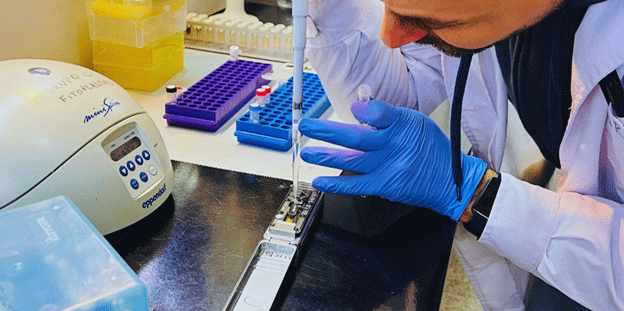In a significant breakthrough for agricultural science, the National Institute of Agricultural Technology (INTA) of Argentina has successfully sequenced the genome of the corn leafhopper (Dalbulus maidis), a key pest that significantly impacts maize crops. This scientific milestone, announced on June 25, 2024, is expected to pave the way for more effective pest control strategies and the development of maize varieties that are more resistant to the diseases transmitted by this insect.
The Importance of Genome Sequencing
The corn leafhopper is notorious for spreading pathogens that cause severe diseases in maize, leading to substantial yield losses. By decoding the insect’s genome, researchers can gain invaluable insights into its biology, distribution, and evolution. This knowledge is critical for predicting and mitigating future outbreaks and epidemics.
The genome sequencing project was spearheaded by a team of experts from the Agricultural Research Center of INTA, under the Secretariat of Bioeconomy of the Ministry of Economy. Their work involved sequencing, assembling, and annotating the genome of Dalbulus maidis, marking the first global accomplishment of its kind.
Factors Contributing to Pest Proliferation
Research highlighted that the rapid reproduction and migration of the corn leafhopper from northern Argentina to the central production areas were primarily driven by high temperatures, abundant rainfall, and staggered planting dates. Understanding these factors allows for more precise targeting of pest control measures, which can be tailored to disrupt the conditions that favor the leafhopper’s spread.
Implications for Pest Control and Maize Cultivation
The successful sequencing of the corn leafhopper genome opens up several avenues for enhancing pest control and maize cultivation:
- Improved Pest Control Strategies: The genomic data provides a foundation for developing more targeted and efficient pest control methods. This can significantly reduce the reliance on broad-spectrum pesticides, leading to more sustainable agricultural practices.
- Resistant Maize Varieties: Insights gained from the genome can facilitate the genetic improvement of maize. By identifying genes associated with insect immunity and plant-insect interactions, breeders can develop maize varieties that are inherently resistant to the diseases spread by the corn leafhopper.
- Advanced Insecticide Development: Understanding the genetic makeup of the corn leafhopper allows for the identification of specific targets for new insecticides. These insecticides can be designed to be more effective and environmentally friendly, reducing the overall chemical footprint in maize cultivation.
Future Prospects and Global Impact
This pioneering work by INTA not only benefits Argentine agriculture but also holds global significance. The methodologies and findings from this project can be applied to similar pests in other regions, contributing to global food security and sustainable farming practices.
Moreover, the integration of genomic data into pest management strategies represents a forward-thinking approach that aligns with the goals of modern agriculture—maximizing productivity while minimizing environmental impact.
The successful genome sequencing of the corn leafhopper by INTA is a landmark achievement that heralds a new era in agricultural science. This breakthrough will enable the development of more effective pest control strategies and resistant maize varieties, ensuring better crop yields and sustainability. As the agricultural community continues to face challenges posed by pests and climate change, such advancements are crucial for the future of global food production.
Error




